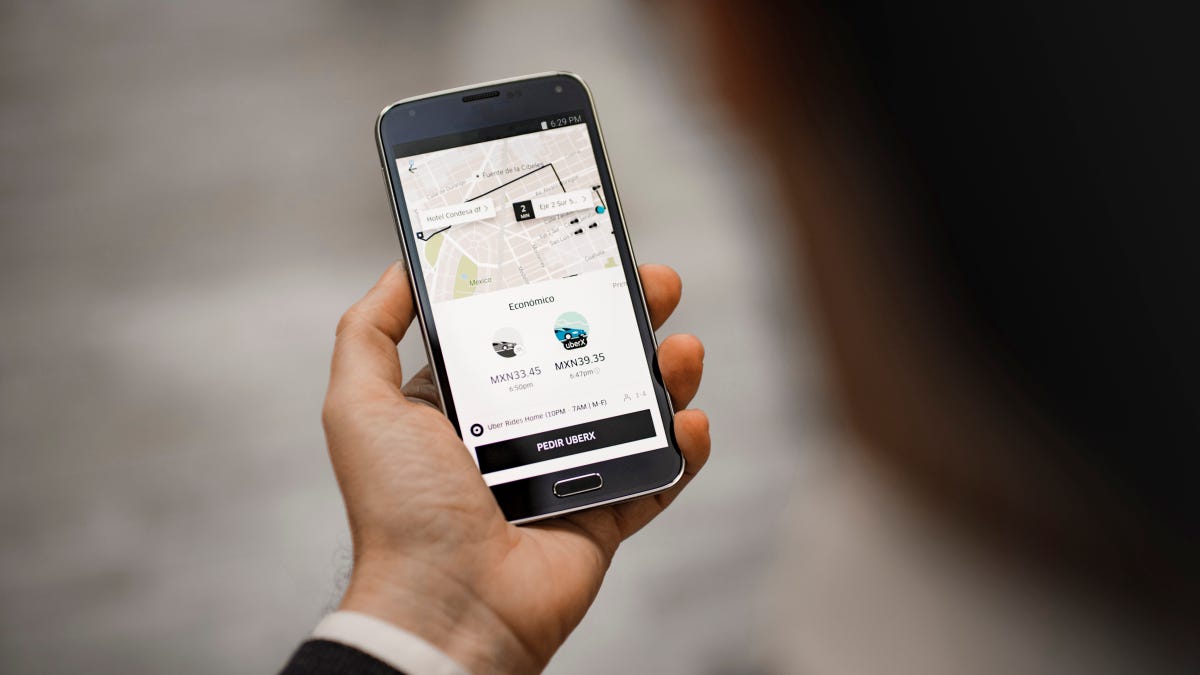EU court asks: Is Uber an app or taxi service?
Europe's highest court looks into Uber's business model. Its decision could have major ramifications for the ride-hailing company.

The crux of Uber's argument at the European Court of Justice on Tuesday is that it's a technology business, not a transportation or taxi service.
Uber doubled down Tuesday on its claim that it's a software company, not a taxi service.
Speaking in front of Europe's highest court, the ride-hailing company defended its business model, saying it was a smartphone app. The company argued it should be allowed to operate freely across Europe.
The hearing at the European Court of Justice has been a long time coming and is central to Uber's ongoing battles with regulators around the globe. In many countries, the company has set up shop before asking local governments for permission to operate.
That aggressive strategy has been crucial to Uber's expansion, helping it grow from a small San Francisco startup to a multinational service in just six years. The company now operates in more than 400 cities in 72 countries and is valued at $68 billion.
"Transportation is something that people do every day, using their own cars and increasingly sharing them with others," Uber said in court on Tuesday during its oral argument, a transcript of which was provided to CNET. "With smartphone technology, Uber makes it more efficient for riders and drivers to connect, in a fast and convenient way."
A lot could change for the company if the court decides Uber is solely a taxi service. Uber would likely have to rethink its business model and abide by the laws and regulations that each country dictates for black car and taxi services. Uber's expansion into delivery services, like UberEats, could also be curtailed.
In its argument, Uber said it was one of many tech services helping Europe move into the digital age. By providing an app that connects drivers with passengers, Uber was opening cross-county barriers, the company said.
"Uber's intermediation service is part of the wave of information technologies that over the last 20 years, have fundamentally changed the way we communicate, shop, travel, inform or entertain ourselves," Uber said. "Uber enables European wide access to a range of services to users no matter which country they are coming from. For example, in the past 3 months, visitors from 74 countries have used the Uber application in Poland."
But Uber has faced resistance in Europe. The company has experienced ongoing clashes with taxi drivers in major cities, like Paris, and with lawmakers in the Netherlands, France, Germany, Spain, Ireland and Belgium.
The European Court of Justice case has its roots in a 2014 battle between Uber and a Spanish taxi company. At that time, a Spanish judge ordered Uber to end all operations in the country, saying its drivers had no official authorization to operate and unfairly competed with licensed taxis.
In July 2015, the judge referred the case to the European Court of Justice.
For this case, France, Spain and Ireland have filed documents saying Uber needs to adhere to the same rules as other transportation providers. However, the Netherlands, Finland and the European Commission (the executive body of the EU) supported Uber's argument that it's a tech business, not a taxi company.
After hearing Uber's argument on Tuesday, the court's judges are expected to deliberate and make a decision by next spring.
Uber declined to comment specifically on the court case.

